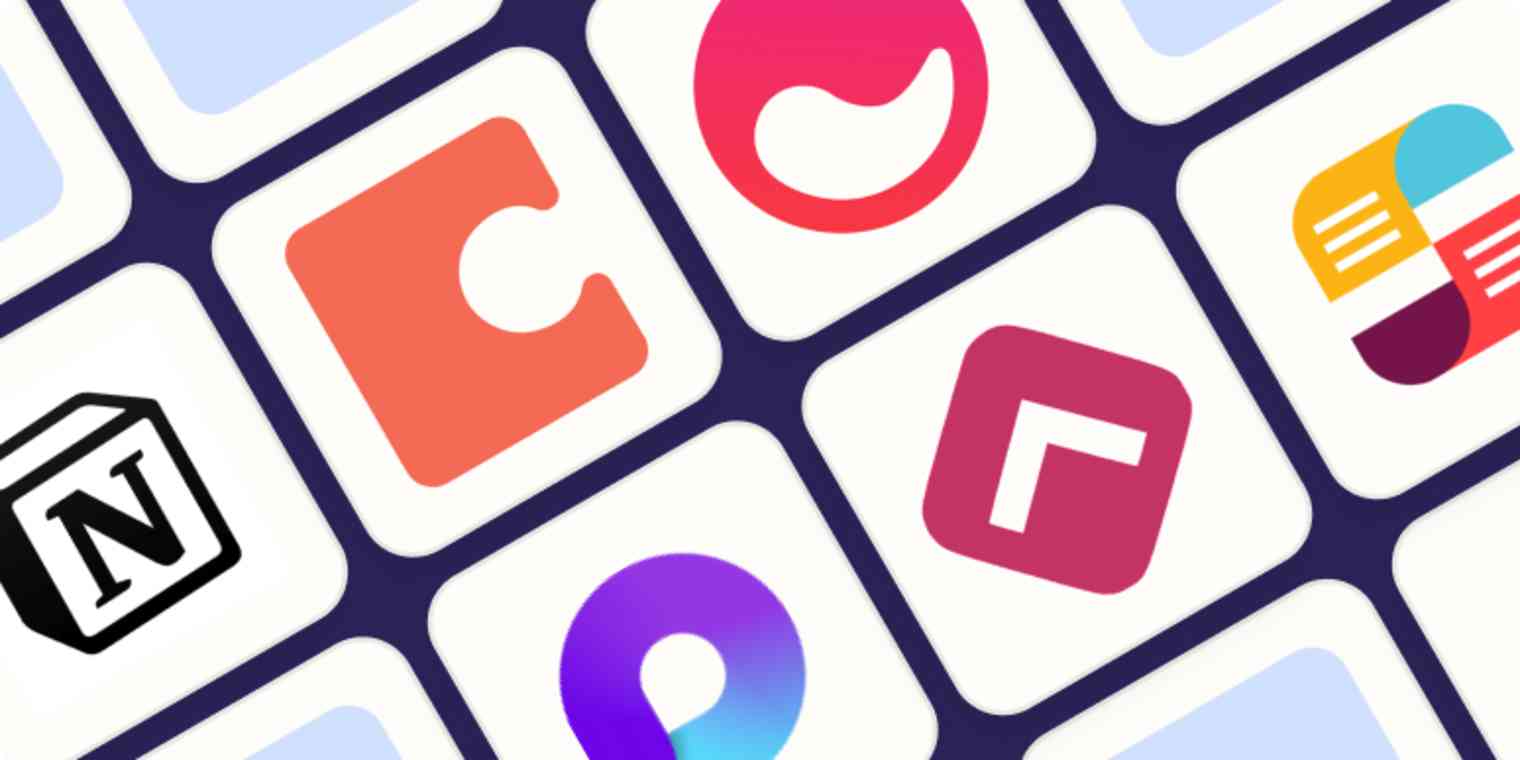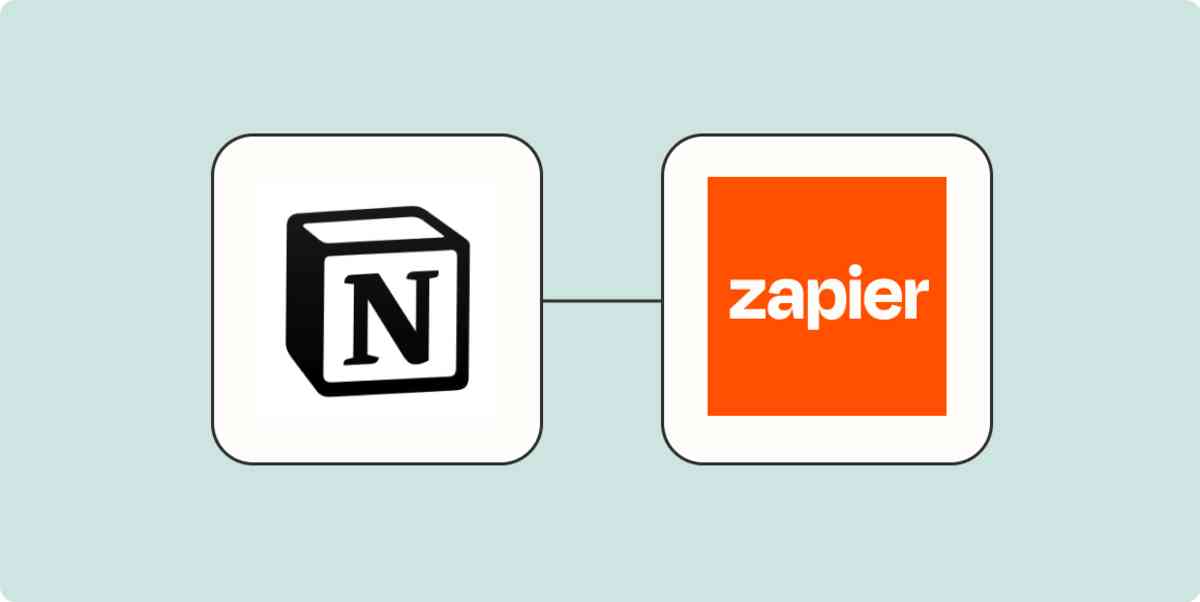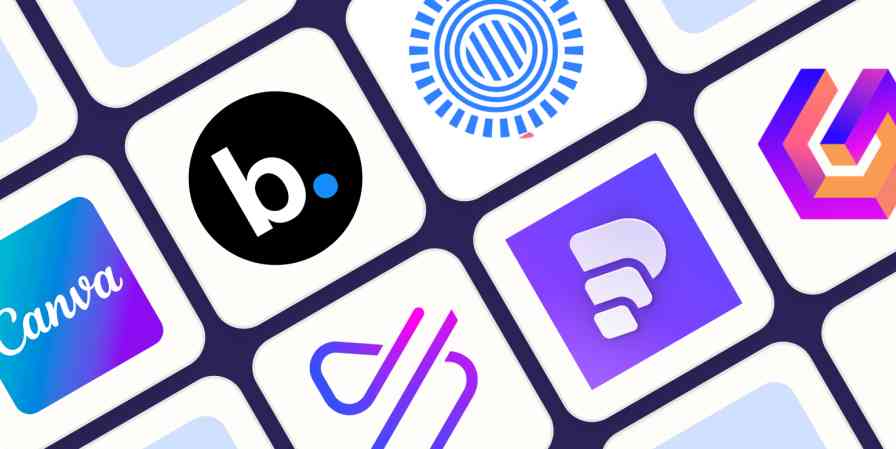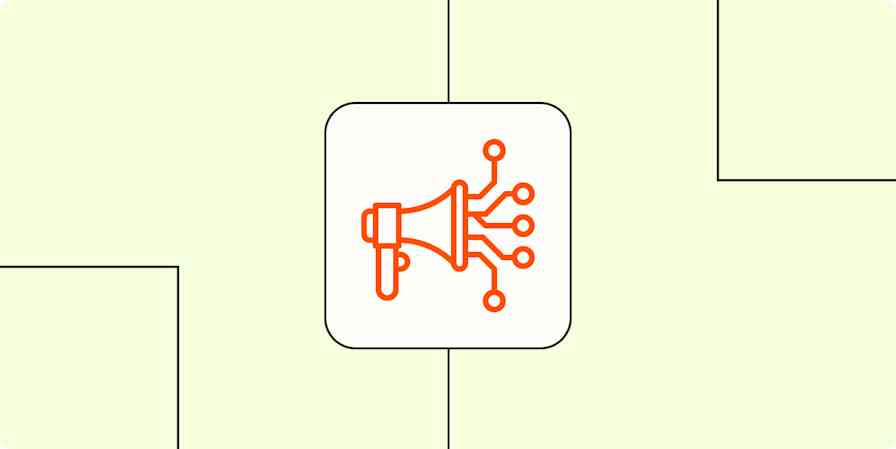Notion has that "I don't know what" that makes organizing information, setting up your personal productivity system, and collaborating with others an absolute breeze. It might be the minimalist interface, the building blocks philosophy, or the intuitive slash commands; whatever it is, the whole app comes together in a powerful and unique user experience.
But after the honeymoon period, power users start feeling the edges of freedom, very much like Truman inside his show. You expect the app will accommodate your every wish and command, only to find that there are, in fact, limitations.
If you've been considering a Notion alternative—or strapping a dozen apps together to get all the features you want—you're in the right place. I considered and did in-depth testing on dozens of Notion alternatives for all skill levels (and all levels of ambition), and these are your best options.
The 7 best Notion alternatives
Coda for powerful formulas and databases
Mem for AI-powered organization
Microsoft Loop for Microsoft 365 users
Upbase for collaborating as a team
Slab for knowledge management
Anytype for privacy, security, and data relationships
Obsidian for fearless tinkerers
And, of course, Notion itself.
What makes a great Notion alternative?
How we evaluate and test apps
Our best apps roundups are written by humans who've spent much of their careers using, testing, and writing about software. Unless explicitly stated, we spend dozens of hours researching and testing apps, using each app as it's intended to be used and evaluating it against the criteria we set for the category. We're never paid for placement in our articles from any app or for links to any site—we value the trust readers put in us to offer authentic evaluations of the categories and apps we review. For more details on our process, read the full rundown of how we select apps to feature on the Zapier blog.
Ideally, a great Notion alternative gives you the freedom to create your own productivity system—your network of documents, databases, and references—without forcing an inflexible user experience on you.
A bit like a sandbox video game, this app category (which doesn't really have a name yet, but I've seen Work OS and Digital Workspace rising as possible ones) gives you the possibility to mix and combine different elements to create your or your team's all-in-one workspace.
Each of the picks on this list has something unique to offer, along with some twists on the original experience you're used to. But to start, I evaluated all the apps I tested using the same criteria:
Document and note-taking features. How easy is it to create, format, share, and embed content? This blank-slate document vibe is the bread-and-butter of Notion, so I wanted to be sure the alternatives stacked up.
Project management and collaboration features. Can you create to-do lists? Kanban boards? What about leaving comments on documents? Can you mention coworkers?
Data organization. Notion offers databases to help you organize your pages and create systems, so we're looking for equivalent features the competition is offering: folders, tags, views, or other original methods.
Performance and user experience. I was paying attention to speed, how the search function works (and where it searches), as well as other details, like the quality of the user interface, onboarding experiences, and available support.
All-in-one potential. Based on all the above, could this app reliably hold all your information and processes in one place without requiring you to connect loads of apps together?
In making my final picks, I tried to make sure that each app was relatively well-rounded, even if each one takes a unique approach.
The gold standard
Notion (Web, Mac, Windows, iOS, Android)
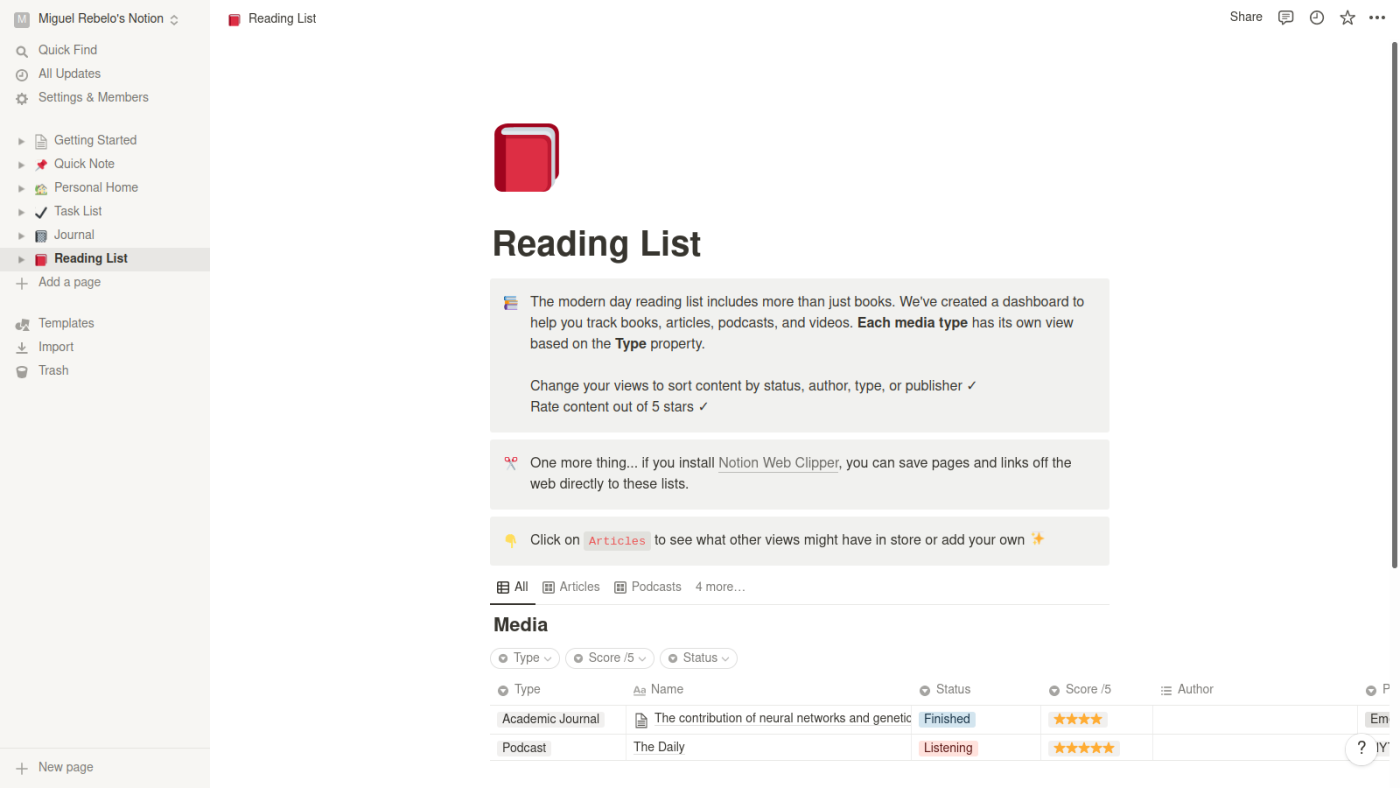
A list of Notion alternatives wouldn't be complete without naming the elephant in the workspace. Unique and powerful, using Notion for the first time feels like you found the One App, the app to replace them all. You can finally focus on building your own information hub and customizing it the way you want to.
Just in case you're not a Notion fan already, here's a brief rundown of everything it offers:
The user experience is minimalistic, putting your content at the forefront of the experience. The tool explains itself as you grasp the basics of building blocks, pages, and databases. You can use these to organize your tasks or documents, create dashboards, or build mini-apps.
Notion databases are super flexible, letting you create pages with attributes and then organize them by creating views. You can use them to create a CRM, a content calendar, or a meeting tracker—the possibilities are nearly endless.
You can bring your team to your workspace and manage work projects, too. Leave comments and mention people on each page or building block, turn pages into wikis, and use the database features to keep track of tasks and subtasks, setting up Gantt or Kanban views to move work forward.
And you can tap into a variety of extras, ranging from configurable buttons to automate tasks to accessing page analytics and history. You can even leverage the power of generative AI on your docs using Notion AI.
With so much on offer—coupled with a generous freemium model—it's no wonder Notion feels like the ultimate all-in-one workspace experience. But this experience isn't without its hiccups. The platform has been widely criticized for performance issues, lack of end-to-end encryption or offline mode, a clunky mobile experience, and the way some searching features have a temperament of their own.
Now, are there solid alternatives to explore? Yes, there's a lot of exciting software. However, there isn't one app that blows Notion out of the water. The alternatives may be better for you because they fit your use case, not because they're much better than the original.
So, if your Notion love story has reached long silences and cold shoulders, keep reading for some options to ignite your all-in-one productivity spark again. And if you're not ready to switch, that's ok. Connect Notion to Zapier, so you can upgrade your Notion experience and connect it to the other apps you use. Here are some examples.
Send emails via Gmail with new items in Notion databases
Notion pricing: Free for unlimited blocks for individuals, up to 5MB per file upload, and 10 guest collaborators. Plus plan starts at $8/user/month.
Best Notion alternative for powerful formulas and databases
Coda (Web, iOS, iPadOS, Android)
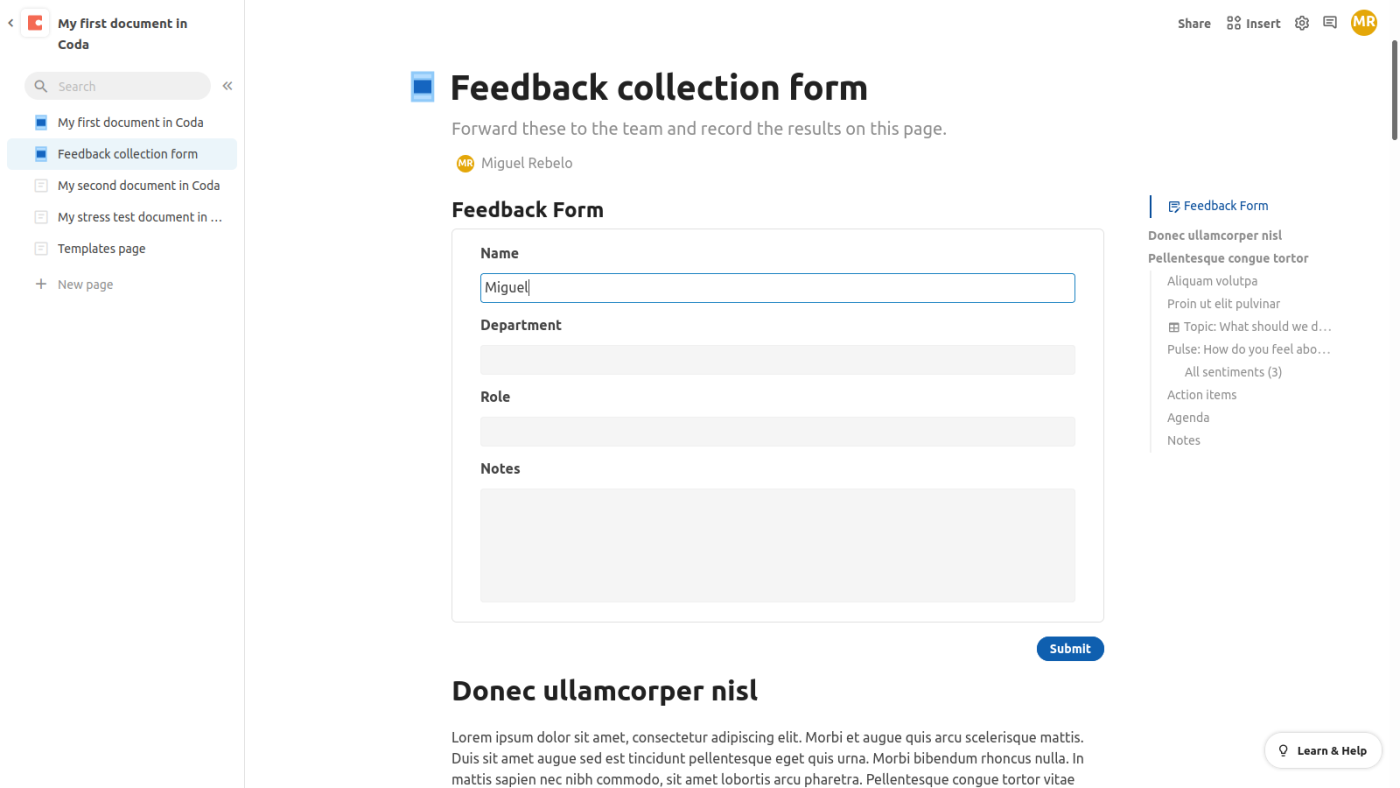
This user on Reddit said it best: if you handle documents and wikis, Notion is stronger; if you need databases and more automation, Coda comes out on top. There's no clear winner between the two apps. It seems each acts on the shortcomings of the other.
There are two reasons why Coda edges ahead in databases. First, there's a handy form view that you can share with respondents to gather data or run surveys—you'd have to integrate something into Notion to be able to do the same there. Second, Coda's databases are more flexible as they let you work with formulas both inside and outside them, connecting logic and data no matter where you are. Start by typing = anywhere, and away you go.
You can also see this flexibility in how Coda AI works with databases and tables to streamline prompts: you can ask to generate a blog post idea for each row, and then ask to generate a summary for each idea on a new column. While these features are still in alpha stage at the time of writing, I can see how they speed up prompting, especially if you're doing it at scale.
Coda handles its integrations well: with Coda Packs, you can embed content from other apps directly into your documents. I connected Coda with Google Calendar, which unlocked a set of elements and formulas I could put in the document to show my schedule and add new events with a button. It's like a toolbox to bring Coda together with other apps, so you don't have to keep a billion tabs open to go around your workday.
Coda is probably Notion's most direct competition and the most natural alternative to it. If you value a powerful database and spreadsheet experience at the core, with the ability to add formulas anywhere, then Coda is the app for the job. And you can take advantage of it even more by connecting Coda to Zapier, so you can automate your business-critical workflows. Here are some examples to get you started.
Create rows in Coda when new companies are added to HubSpot
Add new or updated Google Calendar events as new rows to your Coda docs
Coda pricing: Free plan offers up to 50 objects (pages, tables, etc.) and up to 1,000 rows per doc. Pro starts at $12/document maker/month—viewers and editors are free.
Best Notion alternative for AI-powered organization
Mem (Web, iOS)
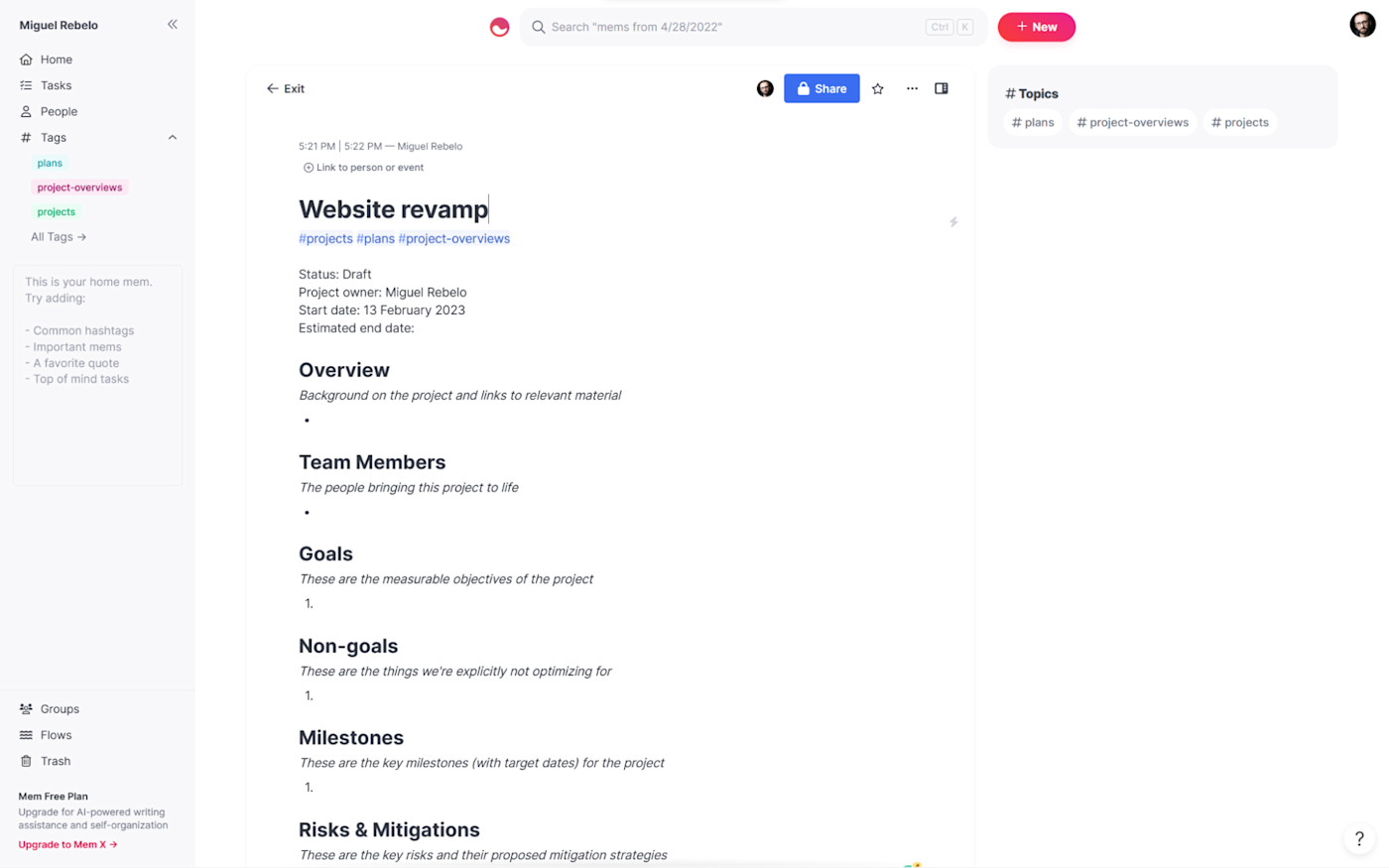
Keeping your knowledge organized feels like good work. But do you track the time you take organizing your notes? If you're spending more time on organization than you are taking notes, Mem is here to save you.
Most apps are using AI to help you fill your docs with generated text or images. Mem goes one step further by using AI to actually tag and organize your content, so you don't have to.
Start by adding your notes in the Home section. This screen is the base for adding content and reminders or for marking your favorite mems. Then, set up the Google Calendar integration, and finish by syncing your email inboxes. You'll be able to see your events and conversations inside Mem and add notes to keep track of important information.
As you go about your day, Mem will use AI to understand the core topics and group them into tags. You'll be able to access these tags from the left-side menu, and as you browse each one, you can see suggestions to add more mems. This way, the chances of creating a note you'll never see again are much slimmer.
Mem also has good support for task management. The Tasks section rounds up all there is to do, offering a set of keyboard shortcuts that make a tactile experience out of adding and completing tasks. Mark tasks as done by pressing enter, or defer tasks into the future by pressing the right arrow and typing a better date.
I like how easy it is to send information over to Mem. You can create new mems by sending emails to your account, writing a text message, or using WhatsApp or Telegram. There's also a Flow that lets you summarize Twitter threads with AI and save them to your Mem, too. But the connection possibilities don't end there. When you connect Mem to Zapier, you can bring even more data in and out of Mem. Here are a few possible workflows for inspiration.
Create mems in Mem from new pushed messages in Slack
Mem price: Free plan with 25MB per file upload and 5GB of total storage. Mem X starts at $10/month, adding self-organizing AI features to your mems.
Best Notion alternative for Microsoft 365 users
Microsoft Loop (Web)
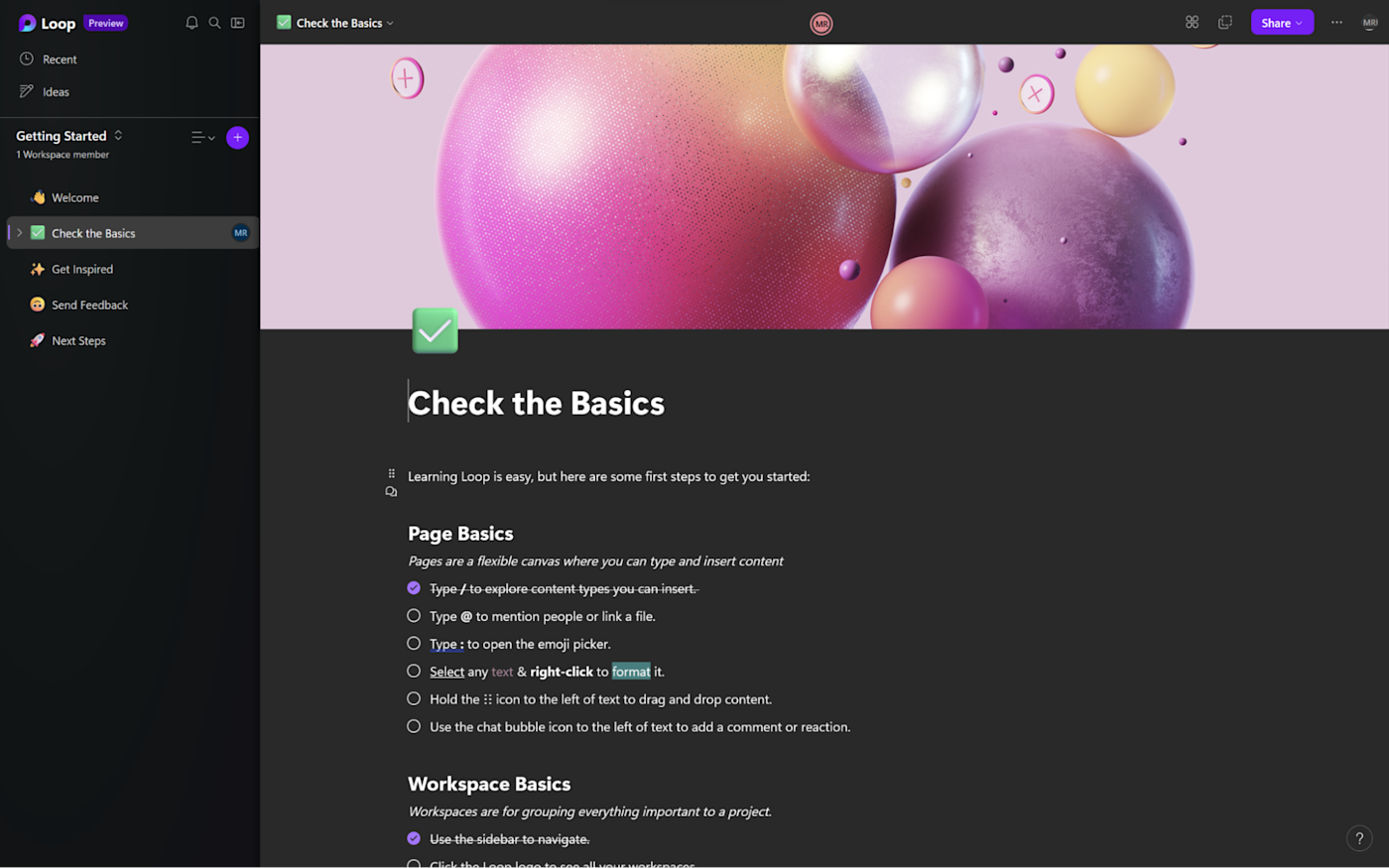
Microsoft has been hard at work lately. If you use Office apps and have all your data on the Microsoft cloud, Microsoft Loop is a great option to tie it all together.
Loop isn't as feature-rich as Notion—not yet, at least. It's still in public preview stage, but it has all the features you need to start gathering information and collaborating with your team. You can create documents, adding content blocks with slash commands, styling and sharing them with others as needed. There's a section where you can jot down your ideas, and you can always access these from the left-side menu, no matter which workspace you're hanging out in.
When creating a new workspace, you can fill it with documents created inside Loop and also add links to the left-side menu, just in case you need to link to valuable resources quickly. You can leave comments on each block or react with emoji to let your teammates know they're on the right track.
But the best feature available is Loop Components. You can convert any content block into a component. Then, you can share it via Teams, Outlook, or Word, and the content will always be synced no matter where it's showing. It will also be updated no matter where you interact with it, so it's really handy to share live updates or gather feedback. It feels like Loop is meant to be the connector that brings all Microsoft 365 apps together, making it a great addition to the software suite.
There are AI features here, but they may not be available to all users just yet. Microsoft Copilot—the product that brings AI features to Microsoft apps—is still rolling out, so it may take some time before you can use generative AI to summarize your meeting notes with one prompt.
Loop shows a lot of promise, and the dev team is actively gathering feedback, so expect this app to grow a lot in the near future. If you want to jump in and help shape it, click on the bottom-right question mark, and start giving feedback.
Microsoft Loop price: Currently in public preview, you can create up to 5 workspaces, add up to 50 members, and store up to 5GB with a Microsoft personal account, for free.
Best Notion alternative for collaborating with your team
Upbase (Web, iOS, Android)
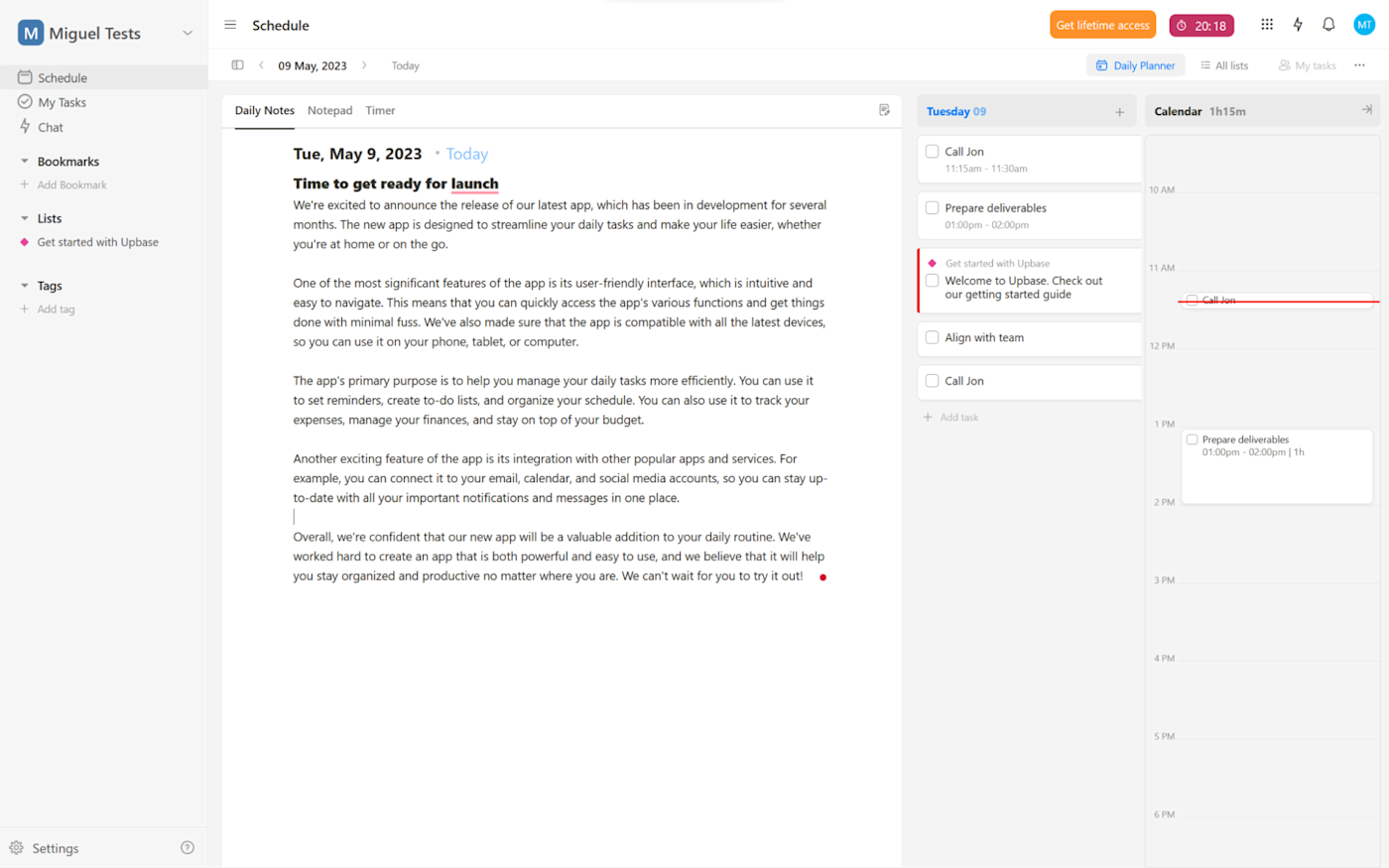
Complete freedom isn't always good. Sometimes it means investing too much time designing the tools and processes you need to get work done. Upbase has a solution to save time: it trades the open-ended feel of Notion for a more on-rails experience, offering a collection of dashboards that help you plan your days, jot down notes, create documents, and collaborate with your team.
You can access these screens from the left-side menu. Let's go top to bottom:
Schedule gives you a blank page every day to work with, a notepad for quick thoughts, a Pomodoro timer, a list of tasks due today, and a calendar view. I really like how you can drag tasks from your task list onto the calendar and adjust their duration there. Scheduling is intuitive and quick.
My Tasks keeps track of all you have to do. You can choose how to group tasks and show them on a list or on a Kanban board.
Chat lets you access Slack-style channels, so you can keep the entire conversation within Upbase. It also supports direct messages, so you can chat 1-on-1 with anyone on your team.
Bookmarks lets you add valuable external links to the menu.
Tags allow you to keep track of topics within your knowledge base.
But I'd argue the best part of Upbase lives in the Lists. These are much more than just task lists—they can be used as team or project hubs. For example, you can add all your tasks to the list, and see them in either list or Kanban view. You can assign these tasks to anyone and set deadlines as necessary. You can build a knowledge base of documents, with slash commands comparable to Notion. Upload important files and organize them in folders, see a calendar for all future tasks, post and reply to announcements, or create chat channels to help people communicate as they move tasks forward. It's a lot—but it all makes sense.
It's interesting to see how Upbase's versatility is based on its structured experience, not so much on empowering you with complete freedom. If you don't like spending time tweaking and tinkering, this is a great option to get work going with a framework that makes sense.
Upbase price: Free plan with up to 3 lists, 5MB upload limit per file, and 1 month message history. Premium starts at $6/user/month, raising the upload limit per file to 250MB and unlocking full message history.
Best Notion alternative for knowledge management
Slab (Web, Mac, Windows)
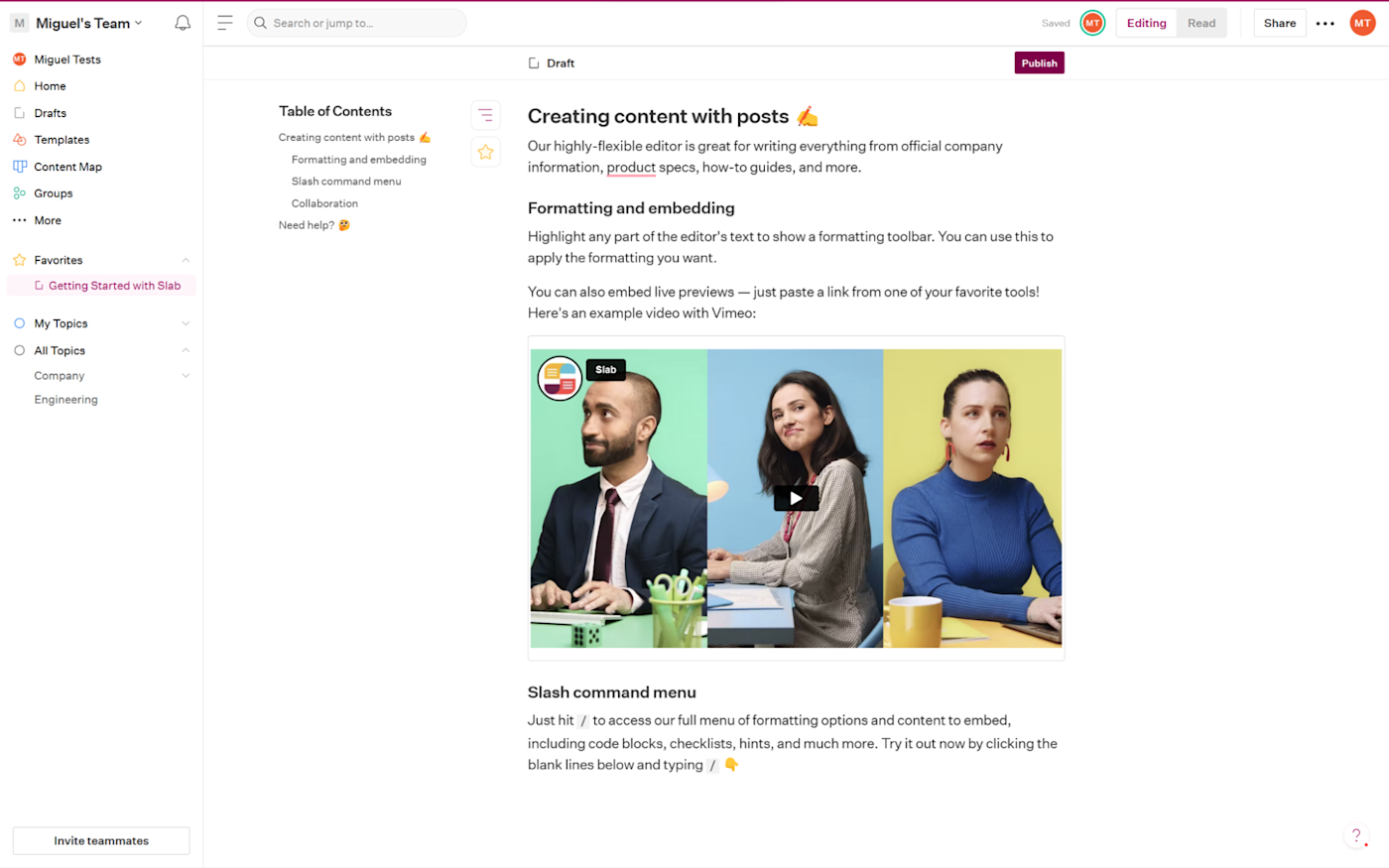
No one loves having to answer the same question over and over again. Creating a single-source-of-truth, team wiki, or knowledge base is the best option to prevent repetitive questions and keep everyone on the same page.
Notion is great for building this type of thing with its pages, databases, content blocks, and convert to wiki features. But Slab brings it up a few notches by also adding knowledge verification: for information that changes regularly, you need to have a way to revisit it at appropriate intervals, so you know it's current.
Here's how it works: after a page is published, click the triple dot icon menu and then Verify. You can set intervals for updating each page, which can be customized to any time interval you need, be it every day or every year. It's easy to see on each page when the last update was and when the information was verified most recently: a green banner appears across the top of the page with the date and the person who verified it.
In addition to these features, Slab also offers good sharing options, letting you share with the public (viewer mode), with team members using a link (you can set viewer or editor mode), or directly with your Slab-registered team members, letting you configure what kind of access they can have.
It's easy to lose sight of the big picture once your knowledge base turns into a knowledge pit. The content map view makes easy work out of managing lots of information. It shows all topics of your knowledge base and all the page names within each topic, so you can plan your next topics, add extra pages, or decide if a particular topic should be broken into two or three to improve navigation and organization.
Slab price: Free plan includes up to 10 users, 10MB per file attachment, and 90-day version history. Startup plan starts at $8/user/month, raising these limits.
Best Notion alternative for privacy, security, and data relationships
Anytype (Windows, Mac, Linux, iOS, Android)
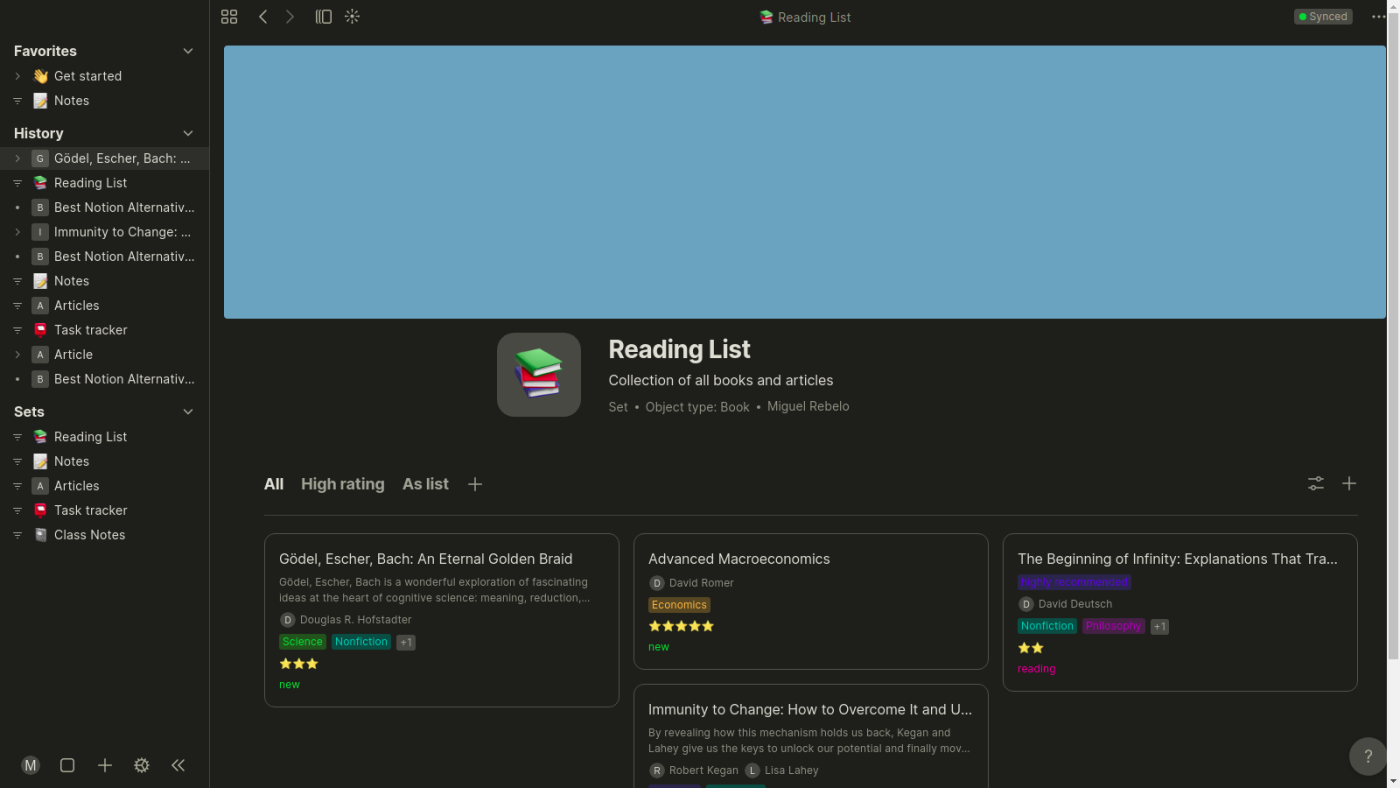
Anytype is still in development—it's moving from alpha to public beta this year—but already shows great promise as a Notion alternative. It brings its own organization philosophy to the table, so let me quickly break it down for you.
Everything within Anytype is an object. I'm an object with the "human" property. I set relationships with the objects I create, be it documents, notes, or invoices, to name a few. An author of a book I read is an object, the books they wrote (also objects) appear in relation to the author, and the notes I've made about each book (yup, objects) are related to each book in the same way.
This kind of linking through relationships doesn't happen in just one way. Anytype has something called bidirectional linking: linking one object to another enables you to move from A to B, and also from B to A, a bit like backlinks with more features built upon it. This allows you to see information in a visual constellation chart and as a sequence of relationships, where you can navigate upstream or downstream to see how information is connected.
All data lives inside your device, encrypted by a unique passphrase assigned to you when you log in for the first time. Lost the passphrase? Goodbye, data. No one, not even the Anytype team, can recover data without the passphrase. Once you get it, keep it safe in a password manager.
Syncing across devices can be done via a cloud server that the Anytype team set up for alpha users. You can turn off the Wi-Fi at any time and still be able to work. Syncing with other devices requires you to update your cloud backup, install Anytype on your secondary device, and wait until it downloads everything. This cloud feature will be paid in the future, being the monetization strategy for the app going forward, both for personal and business users. But if you want to self-host Anytype and run your own server, you can do it after it's released out of beta.
Can Anytype work as an all-in-one at the moment? The final verdict is mixed. If you don't need collaboration features, it definitely can. The document features and the way databases work have a lot of depth, and the app is fast and stable. Is being in development stage a problem? If you need a proven, stable tool, yes; if you want to hop on the forums, engage with other users and the dev team, and suggest your own feature wishlist as you follow the growth, then you'll be delighted by the experience.
Anytype pricing: Currently free
Looking for another original take on organization features? Tana offers a unique way of organizing data. Still in early access, you add your notes in bulleted lists. You can then zoom in or out of these lists, and convert each bullet point into a database object. These can then be linked together to help you find information and make better connections between ideas.
Best Notion alternative for fearless tinkerers
Obsidian (Mac, Windows, Linux, iOS, Android)
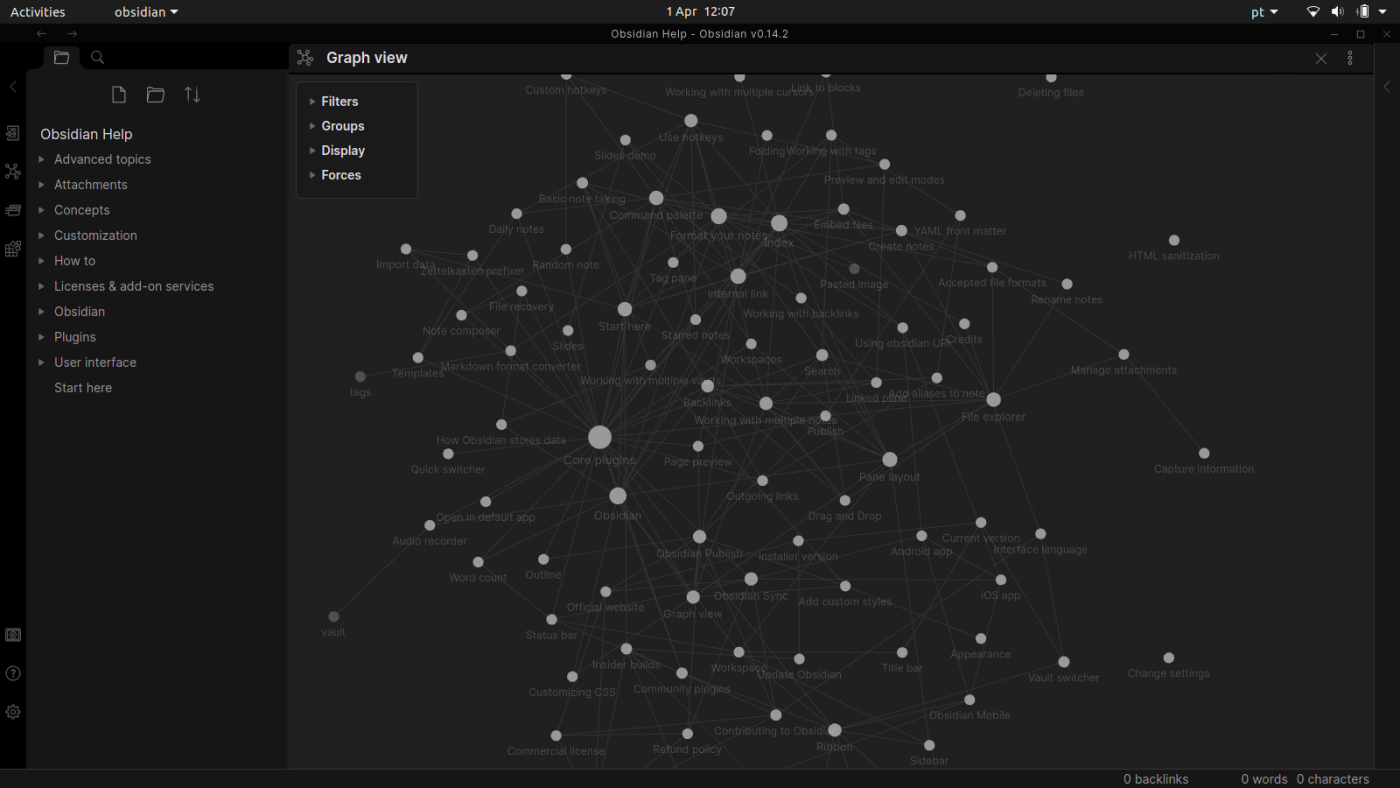
Obsidian brings a unique open-endedness, inviting you to customize it with dozens of plugins. At heart, Obsidian is a note-taking tool with a graph view, allowing you to see your ideas in a constellation. Most of the advanced features and plugins are turned off by default, but going to the settings menu will give you a long list to play around with. And while you can do a lot already with these first-party plugins (such as enabling a slash command menu), the community plugins allow you to add extra functionality to the app itself.
The most exciting part of this app is that you can transform it to suit your needs. Depending on your technical knowledge (or fearlessness), you can set up Kanban boards, calendars, and to-do lists; configure a spaced repetition system; and even add sketches to your notes. This isn't even the full list; there's a lot more to discover.
All your documents live inside a "vault." Since everything is stored locally—in a folder on your computer as Markdown files—your data is always yours. If you want to sync your data to the cloud, you can upload this folder to your file storage app of choice.
Collaborating with others requires some acrobatics, at least while the Obsidian team builds those features into the app. The easiest way is to create a vault, upload it to Google Drive, and share it with your team. Other methods include (brace yourself) setting up a free-tier server on a cloud hosting provider and connecting a live editing plugin.
Adding a database experience also requires tinkering, but some advanced users have successfully created their own database views inside Obsidian, even replicating (and surpassing) Notion's database experience.
Is there all-in-one potential in Obsidian? Absolutely. Will it require you to learn as you go and invest a lot of time and patience? Yes, it will. And the end result might be a tool perfectly tuned to the way you gather, think about, and communicate information. High investment, high reward.
Obsidian pricing: Free for personal use. Paid add-ons for cloud storage and online publishing, as well as enterprise licenses available. Paid plans start at $25 for things like early access and support development.
Can Notion be beaten?
This category of Notion alternatives includes all sorts of approaches and features—some solutions start with entirely different mindsets. All the platforms on this list are either free or have a free plan to help you evaluate the features on offer, so take your time to experiment and see which one matches best with what you need. And hey, maybe Notion is the app for you after all.
Related reading:
Notion comparisons: Notion vs. Roam, Notion vs. OneNote, Notion vs. Evernote
This article was originally published in April 2022. The most recent update was in May 2023.
